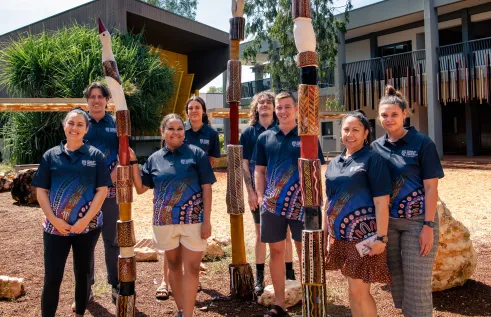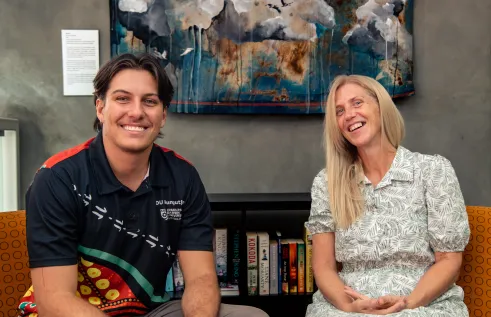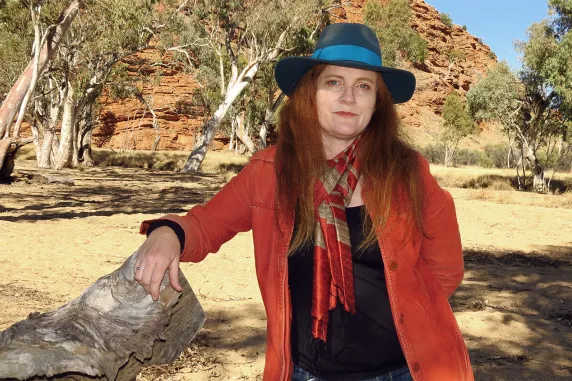News article
Outback isolation study may contain celestial insights
Humanity’s quest to settle Mars may find insight in a new Charles Darwin University study that explores how government workers adapted to life in isolated Outback Territory settlements.
The study by former Central Australian journalist Dr Penelope Bergen examined the lives of several non-Aboriginal workers who lived and worked in communities implementing government policy throughout the Red Centre in the 1960s and early 1970s.
“Examining how they adapted to their isolated circumstances was part of my research to understand the complexities in the development of the culture of this group of remote workers,” Dr Bergen said.
“The research focused on the 10 years from 1964, a decade that was pivotal in very remote Australia, when national Indigenous policy transitioned from assimilation to integration to self-management.
“Until now no one had examined the stories of these individuals in such detail. They were sent to remake an entire society of people. Instead, those who stayed long-term defined themselves in opposition to those policies.
“The most striking thing about this group of remote workers, some of whom are remarkable people with extraordinary tales to tell, is that they were – and remain – largely invisible.”
Dr Bergen said the goal of her project was to benefit remote Aboriginal communities.
“By understanding the culture of remote workers, a targeted approach to supporting them as a sector can be developed. This benefits everyone in remote communities.
“I was interested in how cultures are formed: what people bring with them, how they adapt, what they retain of their own culture, what they leave behind, how geography affects them, and in this case, the position of power and privilege, the effect of government policies, and their relationships with Aboriginal people,” she said.
“One of the core themes to emerge from their stories was that their sense of connectedness as a group was, paradoxically, entirely contingent on their ability to remain disconnected from each other.”
These were largely, young, educated, professional people who wanted to go to remote Central Australia to experience ‘something different’ or to have an adventure.
“A strong contributing factor to liking difference was having the fortitude to withstand isolation. To be able to live in an extreme environment in isolation requires a self-assured, self-contained disposition … and mechanisms to cope.”
Dr Bergen said her findings had implications in other settings, such as the polar regions, the international development and aid sector, and planned settlements on Mars.
While CDU will award Dr Bergen her PhD this month, the university will explore opportunities for a public celebration after COVID-19 restrictions have been lifted.
Related Articles

CDU students ready to make their mark at Indigenous Nationals games
For the second year ever, a team of 14 talented and athletic Charles Darwin University (CDU) students will compete at the upcoming Indigenous Nationals games, set to take place in Melbourne next week.
Read more about CDU students ready to make their mark at Indigenous Nationals games
CDU joins celebration of the Barunga Statement’s 35th Anniversary at annual festival
The historic Barunga Statement, a pivotal moment in the journey towards First Nations rights in Australia, commemorates its 35th anniversary this year at the annual Barunga festival.
Read more about CDU joins celebration of the Barunga Statement’s 35th Anniversary at annual festival
First Nations students celebrated in Valedictory Ceremonies
The drive to help their fellow humans is at the forefront of the minds of two Charles Darwin University (CDU) First Nations students graduating this week.
Read more about First Nations students celebrated in Valedictory Ceremonies
